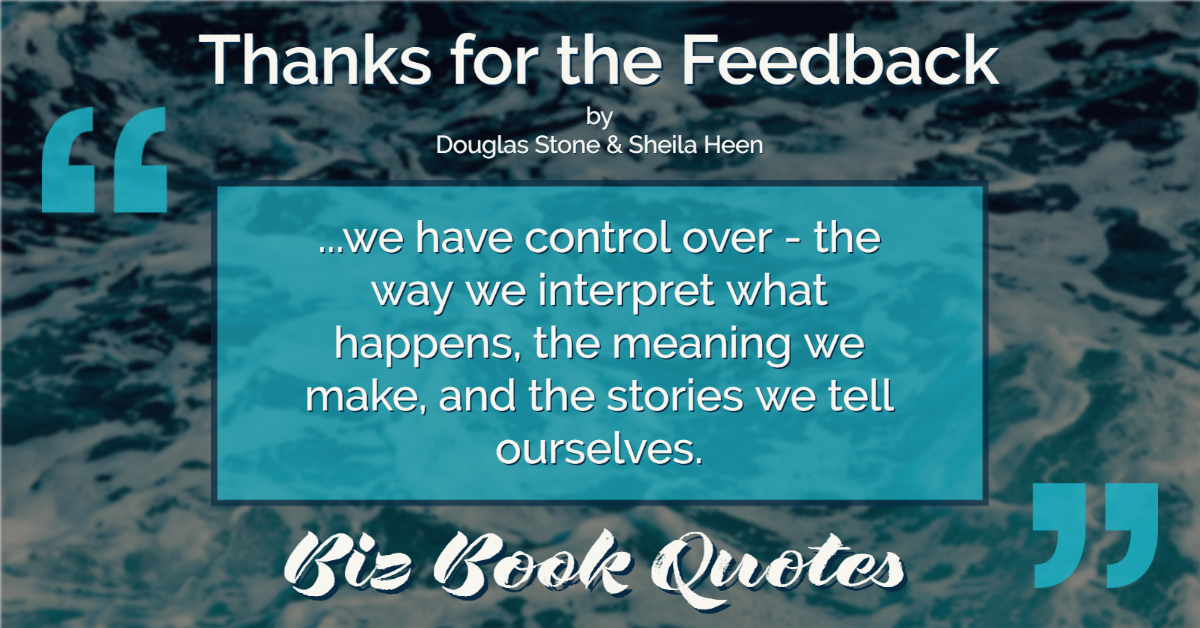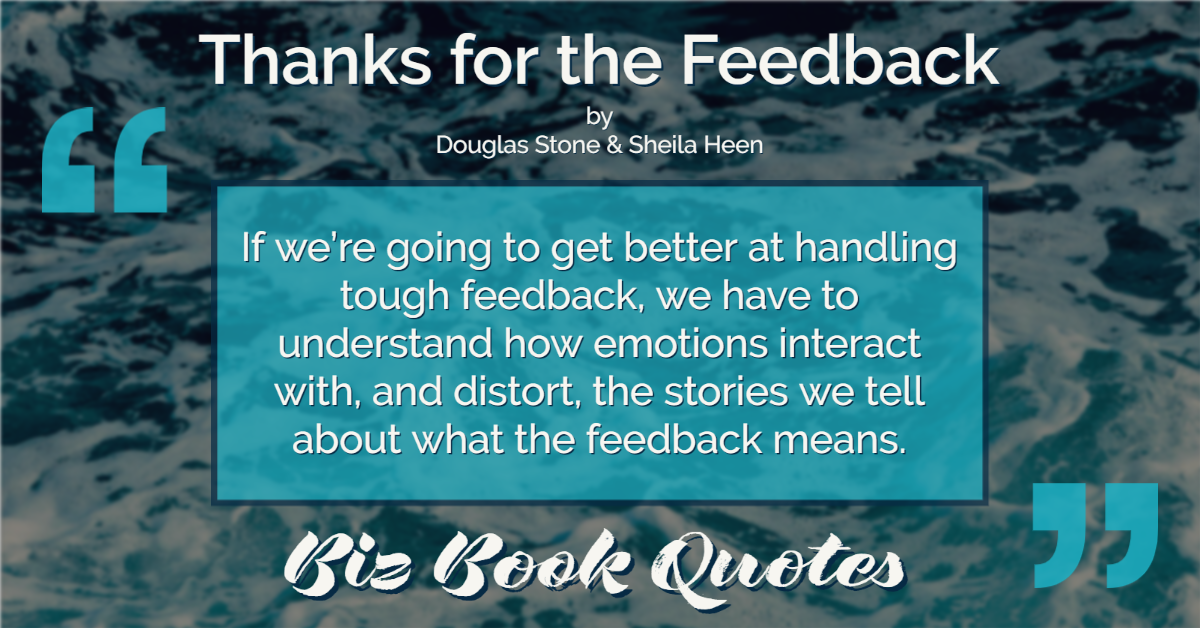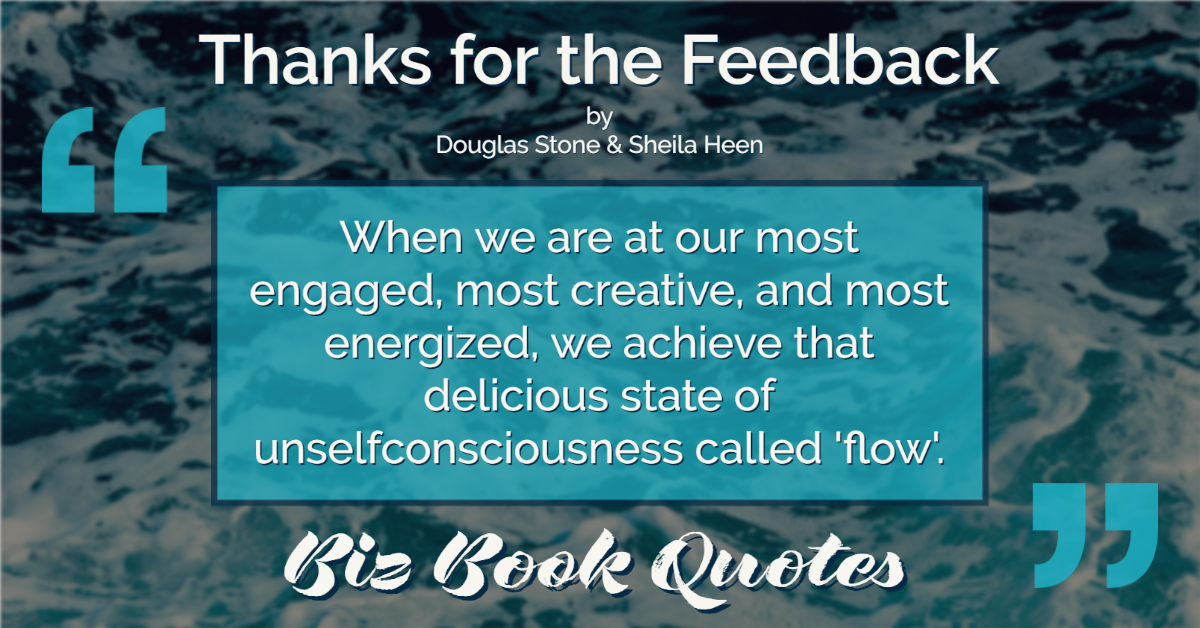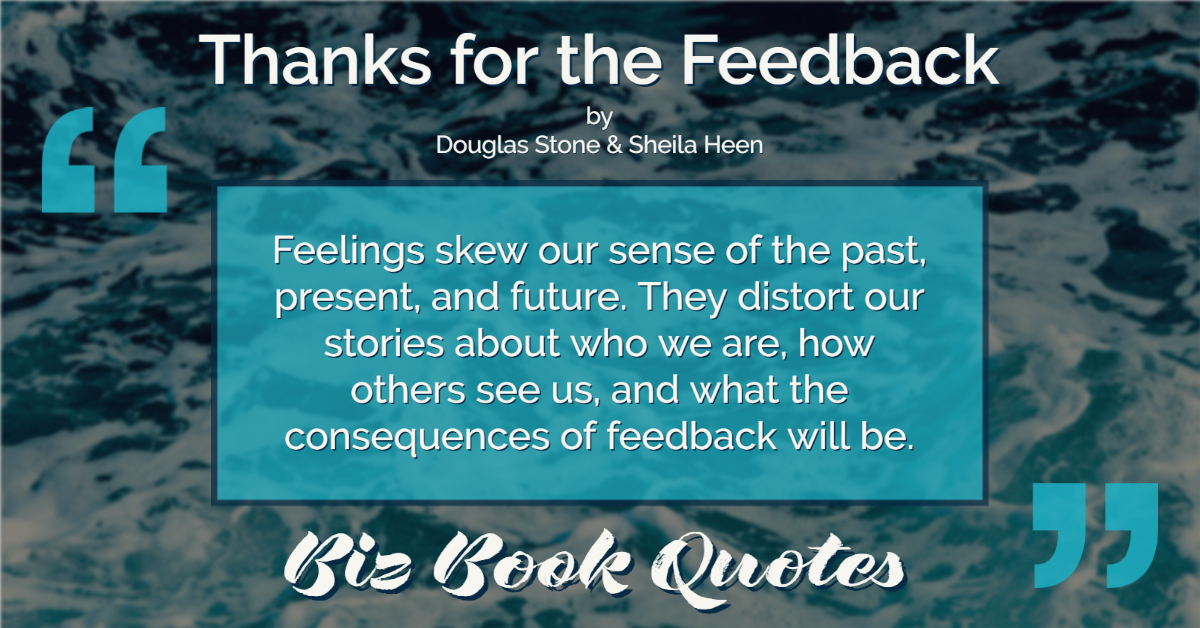|

|
Thanks for the Feedback:
Just as we can retrigger negative feelings by recalling negative feedback, we can extend our positive sustain by recalling positive feedback…
|
156 |
|

|
Thanks for the Feedback:
…we have control over – the way we interpret what happens, the meaning we make, and the stories we tell ourselves.
|
158 |
|

|
Thanks for the Feedback:
If we’re going to get better at handling tough feedback, we have to understand how emotions interact with, and distort, the stories we tell about what the feedback means.
|
159 |
|

|
Thanks for the Feedback:
When we are at our most engaged, most creative, and most energized, we achieve that delicious state of unselfconsciousness called ‘flow’.
|
160 |
|

|
Thanks for the Feedback:
If our stories are a result of our feelings plus our thoughts, then we can change our stories by working to change either our feelings or our thoughts.
|
161 |
|

|
Thanks for the Feedback:
Feelings skew our sense of the past, present, and future. They distort our stories about who we are, how others see us, and what the consequences of feedback will be.
|
161 |
|

|
Thanks for the Feedback:
Feelings affect not only how we recall the past, but how we imagine the future. When we feel bad, we assume we will always feel bad.
|
163 |
|

|
Thanks for the Feedback:
Fueled by emotion, our story about what the feedback says about us grows so large and damning that we are overwhelmed by it. Learning is the least of our worries; we’re just trying to survive.
|
165 |
|

|
Thanks for the Feedback:
…figure out how you tend to respond… – so that you can recognize your usual reaction and name it to yourself in the moment. If you name it, you have some power over it.
|
167 |
|

|
Thanks for the Feedback:
Think through in advance the worst that could happen, try it on emotionally, and reason through the possible consequences. … It’s a reminder that whatever the outcome, you’ll be able to manage.
|
168 |











